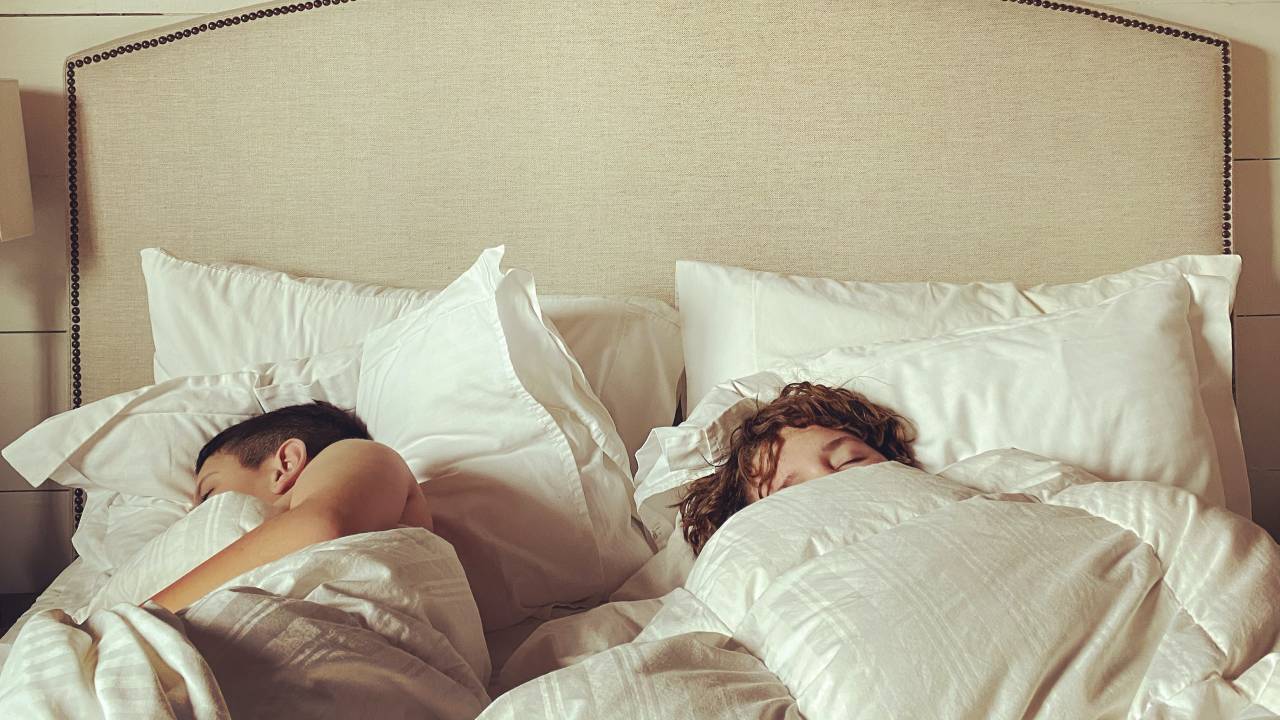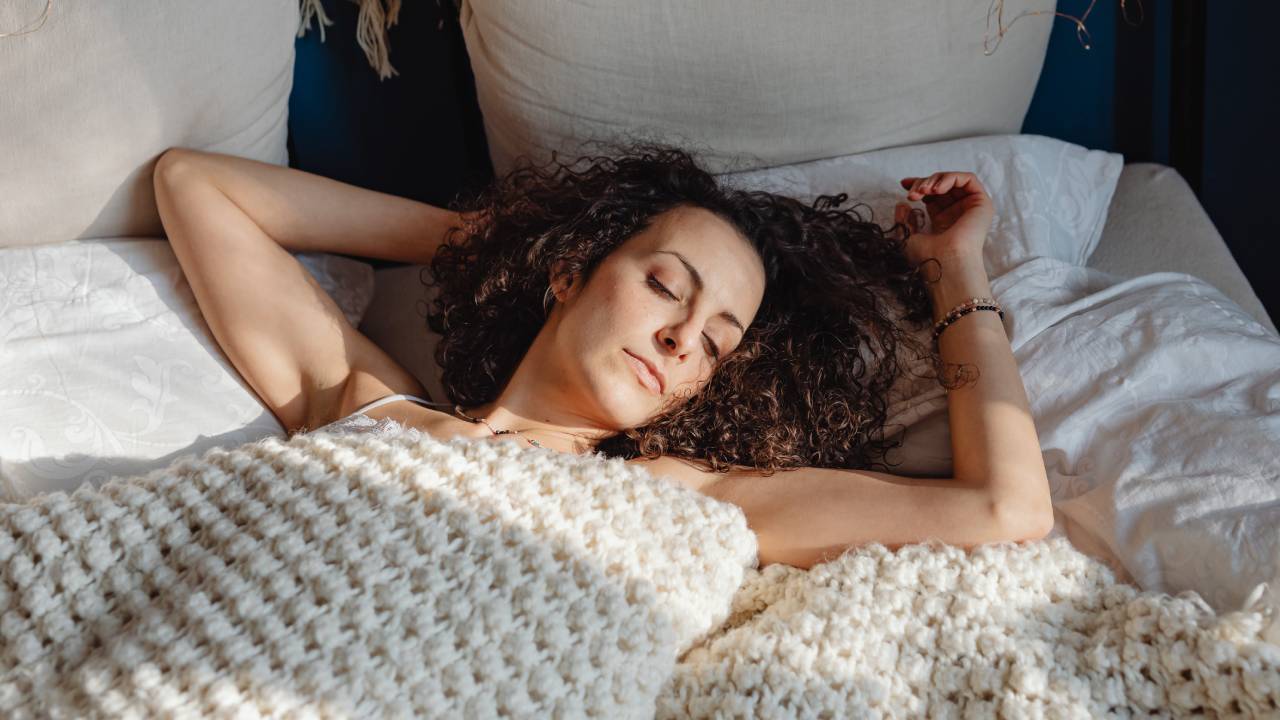Can’t sleep? Here’s how to fix your body clock in 3 days
Follow this 3-day guide to reset your body clock this weekend


Get all the latest news, reviews, deals and buying guides on gorgeous tech, home and active products from the T3 experts
You are now subscribed
Your newsletter sign-up was successful
Despite January being the start of a new year, full of possibilities and chances to start afresh, it’s also one of the hardest months to get through. From no drinking or meat for those doing Dry January or Veganuary, to little to no cash after the holidays, January certainly gets a bad reputation.
And it doesn’t stop there, as January was recently named the worst month for sleep. After Christmas and New Year’s, our sleep schedules are all over the place and getting back into a regular routine can be difficult. If you’ve been finding it hard to get to sleep or you’re feeling exhausted when you wake up, you need to reset your sleeping patterns. Having a sleep schedule is a sign of great sleep hygiene, but it can be hard to figure out where to start.
To help you get back into a sleep routine, we spoke to Martin Seeley, sleep expert and CEO at MattressNextDay who gave us his 3-day guide to fixing your body clock this weekend.
P.S. For the best night’s sleep every single night, invest in the best mattress from Emma, Simba, Otty and more.
Day 1: Saturday
Saturday is the first day off after a long week, so it’s hardly surprising that many people choose to sleep in on Saturday morning. However, this can ruin your Saturday plans and disrupt your sleep schedule. To stay on top of your sleep, Seeley has a few things you should do on Saturday to fix your body clock.
Do a 30-minute workout in the morning
When you wake up on Saturday, start by exercising for 30 minutes. This can be a run, gym session or a YouTube workout but getting this movement into your day has amazing benefits to your sleep in the evening. Seeley says “exercising is shown to improve sleep quality and duration, whilst a healthy sleep cycle ensures more strength and endurance when working out.”
Get all the latest news, reviews, deals and buying guides on gorgeous tech, home and active products from the T3 experts
Drink 2 litres of water
To get that much needed energy boost and avoid lethargy throughout the day, drink at least 2 litres of water. You should be trying to consume this much water every day but it’s especially important on a Saturday, as the weekend is typically where you’ll indulge in alcohol. Drinking 2 litres of water “keeps you hydrated, boosts your energy and helps your metabolism. Mild dehydration can leave you feeling sleepy and negatively disrupt your mood.”
Use lighting to differentiate between points in the day
Light is incredibly important in regulating your circadian rhythm, as it signals when you should wake up and when you should go to sleep. This is why “you should expose yourself to natural sunlight throughout the day. When the sun starts to go down, start dimming your lights so by the time you go to bed, your bedroom is black.”

Day 2: Sunday
Following this Saturday routine, you should be feeling more refreshed on a Sunday. To keep this up and set yourself up for success on Monday, try following Seeley’s tips for a productive Sunday.
Open your curtains when you wake up
Being exposed to sunlight is a great way to wake up and signal to your brain that it’s time to start the day. Not only that but “being exposed to bright light tells your brain to stop producing the sleep hormone, melatonin, which makes you feel drowsy”. If you get a lack of light in the mornings, start your day with the best wake up lights or the best SAD lamps if you suffer from seasonal affective disorder.
Go for a walk
A Sunday walk is always refreshing and a great way to increase your levels of vitamin D. “Just 10 minutes spent in the sun can boost serotonin and stop you feeling sleepy and sad. If you go for a walk that lasts as long as possible, this can also tire you out so you find it easier to sleep that night.”
Take the right nap
If you need a nap, make sure you’re doing it the right way. “You should only sleep between 10-20 minutes as anything longer can risk you feeling groggy as your body will have entered a deep sleep cycle.” It’s also important to get the timing of your nap right and if you start to feel tired in the afternoon, take a nap straight away if you can. Your nap also shouldn’t be too close to bedtime so you don’t disrupt your sleep. See how to have the perfect nap for our golden napping rules.
Cut out alcohol
The ‘Sunday night scaries’ typically hit on a Sunday evening but rather than reach for a glass of wine, try to refrain from drinking alcohol. Although alcohol can make you feel sleepy, it lowers your sleep quality and disrupts your sleep cycle, which can set you up for an unproductive day.

Day 3: Monday
Now that it’s Monday, you’re back into the flow of working. To ensure you have a good start to the week, do the following things on Monday for better sleep.
Eat a balanced breakfast
According to Seeley, “research shows that your diet and sleep quality are linked, so never skip breakfast as it plays an important role in wakefulness. Stick to a balanced breakfast that’s adequate in protein and healthy fats for an energy boost.”
Limit your caffeine intake
As we discovered in our what time should you stop drinking coffee guide, caffeine after a certain time can disrupt your sleep. To avoid a sleepless night, “don’t drink coffee 5 hours before bed and stick to 2 coffees a day. Whilst caffeine can provide a short-term energy boost, it takes an average of 5 hours to eliminate half the amount of consumed caffeine” which can keep you up at night.
Create a stress-free routine
Stress is a big contributor to a bad night’s sleep so in the evening, make sure your sleep routine is as stress-free as possible. This is to reduce the stress hormone, cortisol. “The higher the cortisol, the more awake you feel… try yoga, stretching, meditation, deep breathing or a hot bath as all are proven to help you relax.”
Play rain sounds
Sleep sounds can help you sleep more soundly, so if you’re finding it hard to drift off, try listening to rain sounds or use a white noise machine. “Steady rainfall noises help lure the brain into falling asleep as they’re predictable, calming, non-threatening and can block outside noises.” If you’ve always been curious about white noise, take a look at how white noise machines can help you sleep better for more details.

Beth is Home Editor for T3, looking after style, living and wellness. From the comfiest mattresses to strange things you can cook in an air fryer, Beth covers sleep, smart home, coffee machines, watches, grooming tools, fragrances, gardening and more.
In her spare time, Beth enjoys running, reading, baking and attempting craft projects that will probably end in disaster!